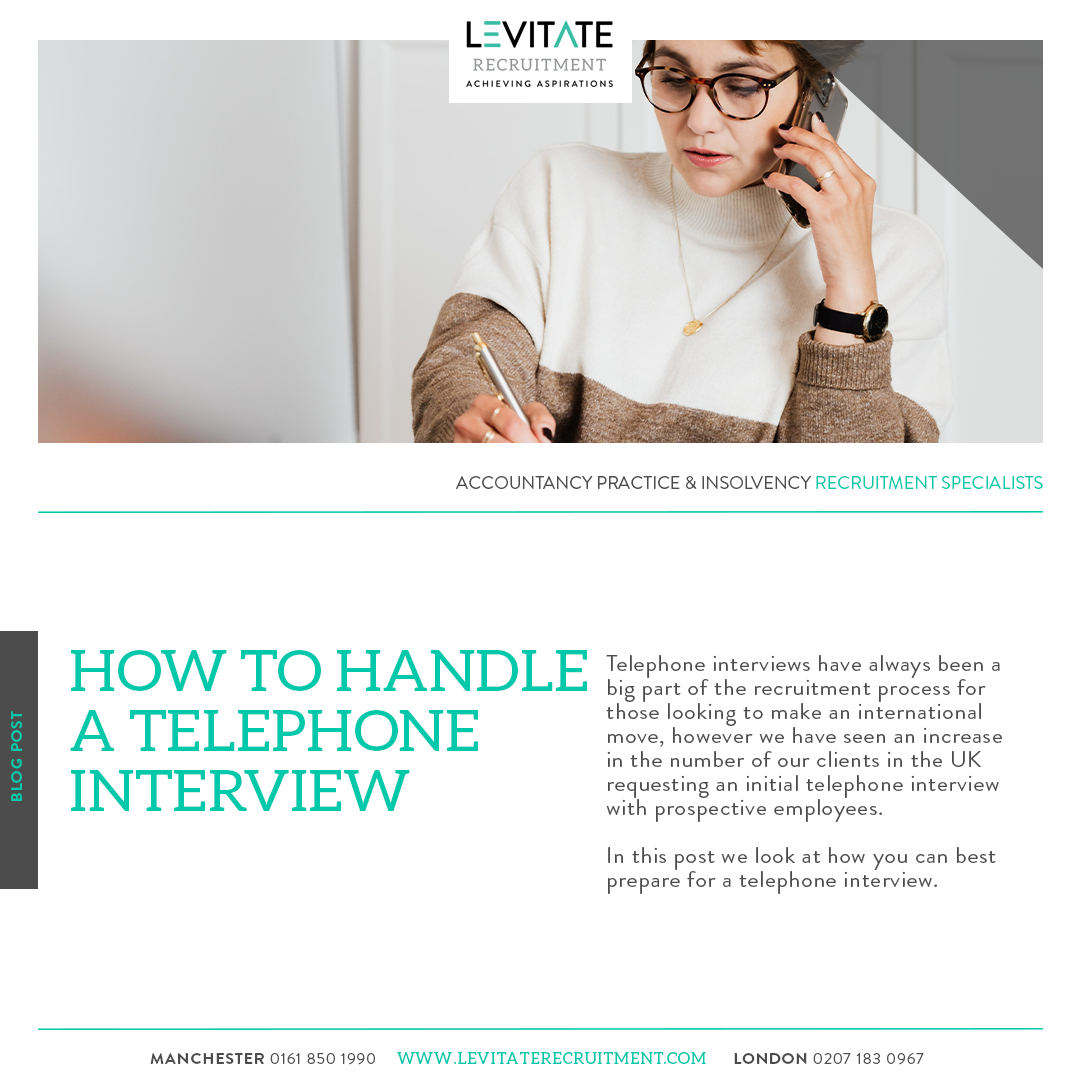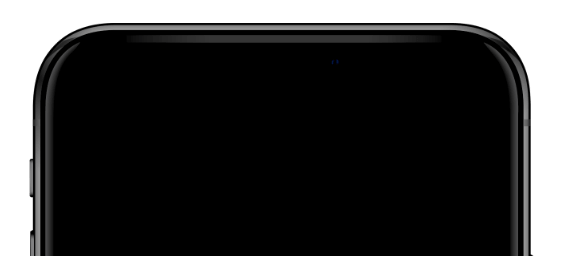Telephone interviews have always been a big part of the recruitment process for those looking to make an international move, however, we have seen an increase in the number of our clients in the UK requesting an initial telephone interview with prospective employees. In a competitive market, they see them as an opportunity to speed up the recruitment process. It is often quicker and easier to arrange a telephone call than it is to align diaries to meet face to face.
As well as fast-tracking the recruitment process it also allows the employer the opportunity to assess an individual’s viability for their opportunity before committing to a face to face interview. They are an easy way for companies to cut down the number of applicants.
The questions are usually more general than in a face to face interview and will be a chance for you to really sell yourself. The key is to treat a telephone interview just like any other interview. Below are some suggestions to help you make the most of the opportunity.
Prepare!
One of the biggest advantages of a telephone interview is that you don’t have to be seen. This is particularly useful if you’re nervous because there won’t be any issues with body language.
It also means you can have notes prepared to give you a quick reference point. Write down a list of your skills and the answers to any potential questions you might be asked. However, be careful not to sound like you are reading or shuffling papers around.
Practice your telephone manner
We all speak on the phone quite a lot, whether this is in a professional setting or not. However, that doesn’t necessarily mean we have a good telephone manner. If you have concerns about the way you conduct yourself on the phone, practice with a friend in advance so you can nail the professional phone voice. Alternatively, record yourself speaking and listen for any issues of clarity or pronunciation.
Where you sit for the interview can make a massive difference. It can be tempting to slouch on the sofa, but this has an effect on your breathing, which in turn affects your speech. Sit at a table or desk with your back straight, and speak with a calm, clear voice. If you think you have issues with your pace, speak slower than you think is acceptable. It’s all too common to speed up when you’re nervous.
A tip I was given a long time ago was to smile whilst talking on the phone to clients and candidates. When you smile whilst talking your voice can sound warmer and friendlier.
Be professional
As much in the same way as dressing appropriately for a face to face interview you should ensure that you are all set up and ready for the incoming call.
This might only be the first stage, but showing your professionalism now is a good way to stand out from the crowd. It almost goes without saying, but make sure there are no distracting noises (TV, pets etc) in the background, and that you have a good signal on your phone.
In conclusion
Listen carefully to their questions, and don’t be afraid to ask them to repeat something if you missed it. Make sure you don’t become too casual while talking and keep your answers short and sweet. It can be all too easy to forget who you’re talking to during a telephone interview. If appropriate, take notes during the call so you can be ready to ask any questions at the end.
At Levitate Recruitment, we think every stage is important, and so we’ve provided these tips to help you excel. As always, research the company and be prepared with any information that might be relevant. It’s always better to have too much than too little.
My opinion is based on my 14 years+ of recruiting for Accountancy Practice and Insolvency professionals across the UK and Overseas.
For advice about your career options, speak to Scott Lowes at Levitate Recruitment, specialists in placing practice-trained accountants and insolvency professionals across the UK, and find the right role to suit your ambitions.







